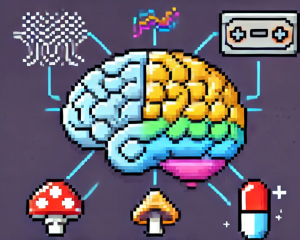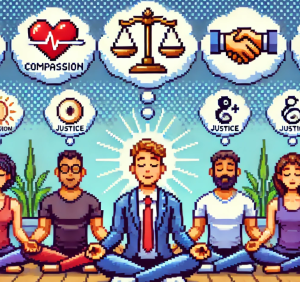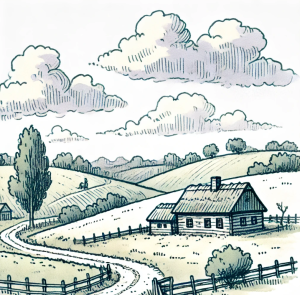
A Closer Look at Gambling Harms and the Power of Peer Support
Imagine feeling trapped in a cycle where the harder you try to escape, the more stuck you become. For many people experiencing gambling-related harms, this cycle isn’t just about losing money—it’s also about the crushing weight of stigma. In fact, stigma can be just as harmful as the financial and emotional toll of gambling itself. But why does this stigma exist, and how can we break the cycle?
A recent study published in PLOS ONE provides new insights into the stigma surrounding gambling harms. By analyzing posts from online support forums, researchers uncovered five key ways stigma manifests and identified how it can act as a significant barrier to seeking help. Let’s dive into the findings and what they mean for individuals, communities, and public health.
Stigma Takes Many Forms
The study revealed five interconnected themes of stigma faced by people with gambling-related harms:
- Beliefs About Addiction: Many participants saw gambling harm as a moral failing or inherent flaw, often labeling themselves as “addicts.” This framing reinforces the belief that gambling is a personal weakness rather than a treatable condition.
- Self-Stigma: Participants frequently used harsh, self-critical language, describing themselves as “broken,” “worthless,” or “degenerate.” This internalized stigma not only harms mental health but also fuels a sense of hopelessness.
- Anticipated Stigma: Fear of judgment prevented many from seeking help or even disclosing their struggles to loved ones. This fear often led to isolation, which only exacerbated the problem.
- Stigma Toward Others: Interestingly, some participants who stigmatized themselves also stigmatized others with gambling harms, perpetuating a cycle of judgment within the community.
- Experienced Stigma: Direct experiences of discrimination, whether subtle (like losing autonomy over finances) or overt (like public humiliation at a gambling establishment), further deepened the participants’ sense of alienation.
A Timeline of Struggles
The study also mapped stigma onto a timeline of gambling harms, highlighting six stages: onset, concealment, crisis point, disclosure, recurrence (relapse), and recovery. The findings show that stigma intensifies at key moments—especially during relapse—creating additional hurdles for those trying to rebuild their lives.
The Ripple Effects of Stigma
Stigma isn’t just a personal problem—it’s a public health issue. Here’s why:
- Barrier to Help-Seeking: Less than 10% of individuals experiencing gambling harms seek professional help. Anticipated stigma is a major reason why, with participants fearing they’ll be judged or rejected if they disclose their struggles.
- Impact on Mental Health: The study revealed frequent discussions of shame, self-loathing, and even suicidal thoughts among forum users. One participant wrote, “I feel like suicide is the only option.” This highlights the urgent need for interventions that reduce stigma and provide accessible mental health support.
- Perpetuation of Harm: When people internalize stigma, they’re more likely to believe they’re unworthy of help or incapable of change. This creates a vicious cycle where stigma drives harmful behavior, which in turn reinforces stigma.
Breaking the Cycle: What Can Be Done?
The findings point to actionable steps for reducing stigma and supporting those affected by gambling harms:
- Promote Non-Stigmatizing Narratives: Public campaigns should emphasize that gambling harm is a health issue, not a moral failing. Shifting the narrative from blame to understanding can help reduce societal stigma.
- Leverage Peer Support: Online forums emerged as a safe space for participants to share their struggles anonymously. These platforms offer a valuable model for creating supportive, stigma-free environments that can bridge the gap between isolation and professional help.
- Prepare for Relapse with Compassion: Relapse often triggers heightened self-stigma and judgment from others. Public health professionals and support systems must emphasize that relapse is a common, manageable part of recovery—not a sign of failure.
- Engage Families and Communities: Since anticipated stigma often revolves around fears of family rejection, targeted family education programs could help reduce stigma at the household level and foster supportive environments for recovery.
What’s Next?
While this study focused on UK-based forums, the lessons are globally relevant. Future research could explore how cultural factors influence gambling-related stigma and test interventions designed to reduce self-stigma in online and offline settings.
Another important area for exploration is how intersectional stigma affects people with gambling harms. For example, how do factors like race, gender, or socioeconomic status shape their experiences? Addressing these layers of marginalization will be key to creating more inclusive and effective support systems.
Join the Conversation
Stigma thrives in silence, but we can all play a role in changing that. Whether you’re a public health professional, researcher, or someone with lived experience, your voice matters. Let’s work together to dismantle the barriers that keep people from seeking help.
- What strategies have you seen work to reduce stigma in your community?
- How can online support forums be better integrated into public health responses?
- What role should families and friends play in reducing gambling-related stigma?
Let us know your thoughts in the comments or on social media. Together, we can create a world where seeking help is a sign of strength, not shame.
Be Part of the Change – Get Weekly Updates!
Stay informed and connected. Subscribe for free and share this blog to make a difference in public health with others. If you liked this blog, please share it! Your referrals help This Week in Public Health reach new readers.



